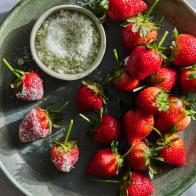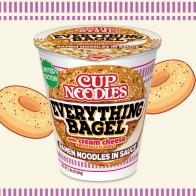Can You Give Yourself a Food Intolerance?
Here's how cutting out meat, dairy, gluten and other food groups might affect your ability to digest them later on.

cagkansayin/Getty Images
Lately it seems some of the trendiest diets are the ones that recommend eating less and less food. Cutting out entire food groups has become the fastest route to self-diagnosing digestive issues, but there is some important science to keep in mind. Restrictive diets not only put you at risk for nutrient deficiencies, you may be cutting foods out unnecessarily. Here’s what might really going on when you eliminate foods from your diet — and how to reintroduce them, if you want to.
Dairy
Let’s face it, dairy gets a bad reputation for everything from acne to tummy troubles, and while lactose intolerance is a legitimate medical issue for some, there is often a comfortable threshold of lactose-containing foods that can be consumed without a problem. If you have cut out dairy for a period of time and experienced stomach issues upon reintroduction, there may be a physiological explanation: The less dairy you eat, the less your body can absorb. The genes that produce lactase (the enzyme that breaks down lactose) down-regulate because there is less demand for it. However, if you gradually re-introduce dairy starting with lower-lactose foods like Greek yogurt, cheddar cheese or cottage cheese, you’ll get a corresponding uptick in those enzymes again.
Gluten
Gluten remains in the cross-hairs of elimination diets, but unless you have the autoimmune condition knowns as Celiac disease there is no reason to banish gluten-rich foods from your diet. Gluten intolerance, which is not the same as Celiac disease, may lead some people to cut back on gluten, which has played a role in the “I stopped eating gluten and I feel better” narrative. However, the phenomenon of cutting out gluten in order to help with ailments may result in a reduction in excessive amounts of highly-processed carbs, which were likely the real culprit of the issue in the first place.
Sugar
Despite all its demonizing, sugar is pretty darn digestible, but it's not one-size-fits-all. Fructose, a main component of added sugars, takes longer to digest and some people may find that eating large amounts causes gas and bloating. According to research, a fructose-reduced diet may benefit those suffering from gastrointestinal GI disorders like irritable bowel syndrome (IBS).
Soy
Soy allergies are one of the top eight allergens in the U.S., but again, not a place for self-diagnosis. Since soy is in so many foods and many of them processed, here’s another example where soy may be getting blamed, when it's actually an issue with consuming too much processed food.
Meat and Fish
Part of the reason we like to eat protein may also be why some folks think they have trouble digesting it. Protein takes time to break down: It requires a lot of stomach acid to digest, which is why high-protein meals make you feel fuller longer. Much like those digestive enzymes (see dairy), stomach acid production will ramp down when there is less demand. Reintroducing a high-protein food like meat should also be done gradually to allow your digestive system to reacclimate. Additionally, raw or undercooked protein is even harder to digest, so if you haven’t eaten meat for a while, sushi probably shouldn’t be your first meal.
Bottom Line: Giving Up a Food Is Unlikely to Result in Permanent Intolerance
Your amazing body adapts, give it a chance! If you remove something from your diet, gradual reintroduction helps support the enzymes you need to digest it properly. If you suspect a digestive issue, consult with your doctor and a registered dietitian.
Dana Angelo White, MS, RD, ATC, is a registered dietitian, certified athletic trainer and owner of Dana White Nutrition, Inc., which specializes in culinary and sports nutrition. She is the author of four cookbooks First Bites: Superfoods for Babies and Toddlers, The Healthy Air Fryer Cookbook, The Healthy Instant Pot Cookbook and Healthy Quick and Easy Smoothies.
*This article was written and/or reviewed by an independent registered dietitian nutritionist.
Related Links:


































